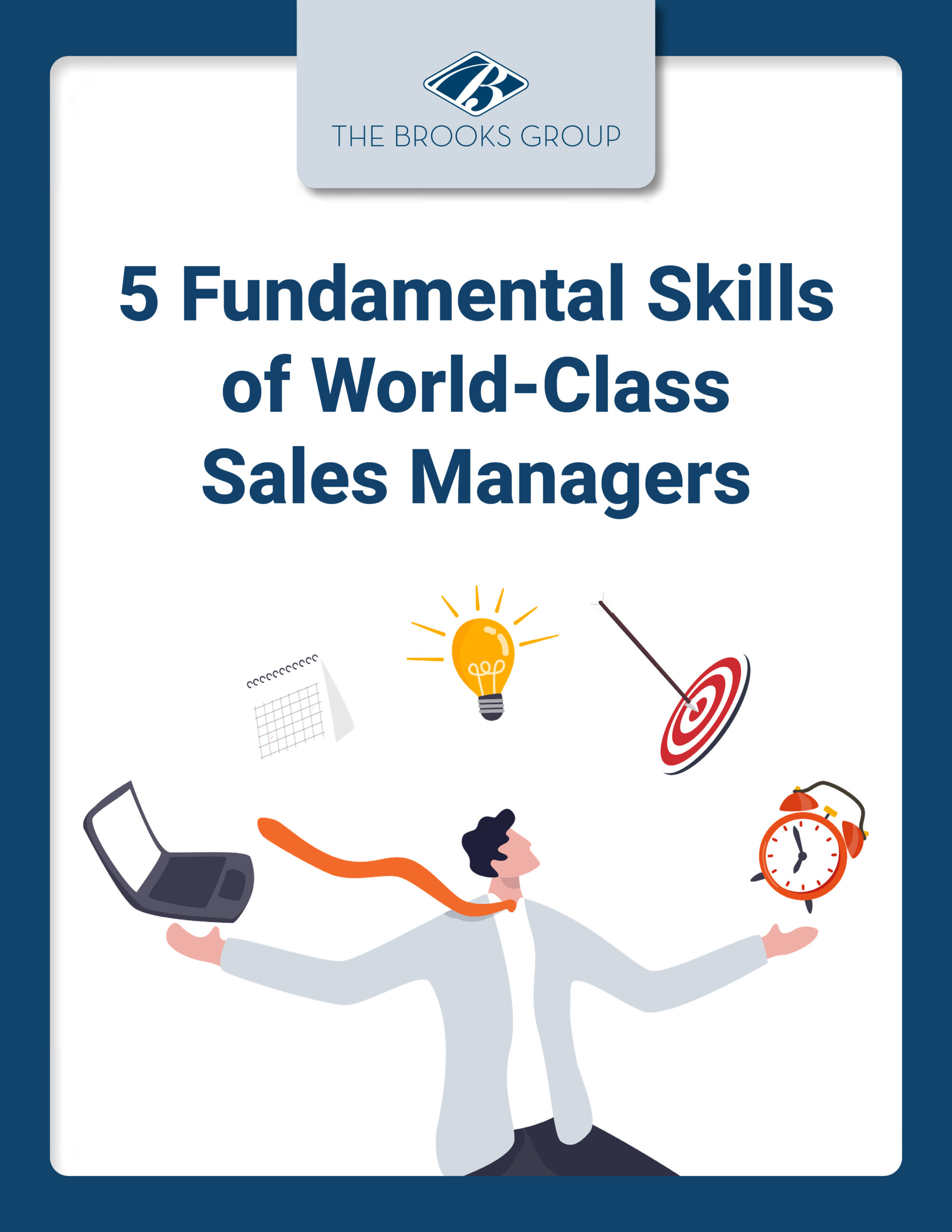Even the most cohesive organizations can experience sales team issues. Sales professionals (in general) tend to be confident, extraverted, and opinionated. Although some of these subjects might seem mundane to those who aren’t in a sales career, there are several topics sales professionals often have strong opinions about.
Anything that directly impacts prospecting, presenting, closing, and compensation can turn into an impassioned debate among members of the profession. Sales leaders need to be alert to these hot-button issues and prepared to step in to settle arguments or proactively steer around them.
7 Sales Team Issues That Can Lead to Conflict
1. Forecasting and quota setting
The processes and performance metrics used to project sales numbers and set individual/team goals are hotly disputed within sales organizations.
2. Commission structures and compensation plans
How sales professionals are paid in terms of base salary, commissions, and bonuses is a very sensitive topic that can lead to strong disagreements.
3. Lead generation tactics
Whether it’s cold calling, email marketing, social media outreach, or something else, sales professionals have their “go to” tactics and have fierce arguments about the most effective ways to generate qualified leads.
4. Sales scripts and pitch decks
The language and visuals used in sales presentations to sell products or services are carefully crafted, and sales professionals can get quite defensive about their proven talk tracks and slide decks.
5. Customer relationship management (CRM) software
Sales teams live and breathe by their CRM tools, and they can get quite passionate about the pros and cons of different platforms such as Salesforce vs. HubSpot, for example.
6. Productivity tools
Software that helps with tasks such as email tracking, call logging, lead enrichment, etc., often inspire cult-like loyalty or disdain.
7. Corporate swag and promotional items
You’d be surprised how opinionated sales professionals can get about the quality, design, and utility of company-branded merchandise given out to prospects.
Sales Leader Benefits of Sales Conflict Resolution
There are definite benefits to trying to resolve disagreements within a sales team, even on seemingly mundane topics. Exceptional sales managers will recognize that addressing flash points head-on prevents minor issues from becoming lingering sources of negativity, mixed messages, and poor performance.
The short-term effort of settling disputes pays off with a more focused, aligned, and productive sales team and a stronger company culture in the long term.
Improved Focus and Alignment
When you resolve conflicts, it allows the team to move forward with clarity and commitment around processes, tools, and priorities. Alignment reduces wasted energy and increases focus on revenue-generating activities.
Higher Morale and Engagement
Unresolved debates can lead to frustration, cynicism, and disengagement. Settling debates in a fair, transparent way shows team members you hear them and are making carefully considered decisions.
Better Adoption of New Initiatives
If your team members feel their viewpoints were factored in, they’re much more likely to fully adopt new systems, scripts, and/or quotas rather than resisting or sabotaging change efforts.
Stronger Team Cohesion
While differences of opinion can be divisive, the resolution process can actually bring the team together around a unified way of operating, when done constructively.
Shared Organizational Knowledge
The process of healthy debate surfaces insights, techniques, and creative ideas. Capturing this knowledge benefits the entire organization.
Continuous Process Improvement
Resolving disputes shouldn’t be seen as a one-and-done activity. It creates a feedback loop for constantly refining and optimizing processes over time.
How to Resolve Sales Team Issues
The key to conflict management in sales is balancing feedback from front-line sales professionals while driving toward objective, data-backed decisions in the best interests of the team and company—before issues turn into bigger sales management problems.
Sales leaders can use these tactics for an open but disciplined process to help settle debates around hotly contested topics.
Sales Coaching
Use individual and team sales coaching sessions to resolve conflicts and develop solutions in a healthy and constructive manner that leads to positive outcomes.
Data-Driven Decision Making
Emphasize making decisions based on hard data and metrics rather than on personal opinions or anecdotes. Find out if this is an issue that’s affecting more than one team member. Track and analyze results from different approaches to see what is quantifiably working best.
Pilot Testing
For systems such as eLearning platforms, CRM tools, scripts, or productivity apps, run pilot tests with part of the team using different options. Evaluate the pilots based on performance data before rolling anything out widely.
Outside Expertise
Bring in industry experts, analysts, or consultants to provide objective third-party assessments—free from internal politics—on controversial topics.
Open Forums
Create open forums where sales professionals can respectfully voice their viewpoints and debate pros and cons—but have clear ground rules against personal attacks.
Sales Professional Feedback
Regularly survey your team members (anonymously) about tools, processes, and compensation to get a pulse on sentiments. Address widespread concerns.
Transparency
Be very transparent about how decisions get made, what data drives them, and the rationale behind major changes to tools, scripts, quotas, or other sensitive issues.
How Personality Assessments Can Help Internal Sales Conflict Resolution
Understanding the behavior styles, communication preferences, and personality of each individual on your team is essential for good sales leadership in general. It’s especially important when it comes to disputes.
There are a number of sales assessments that can help you understand a sales professional’s behaviors, motivators, and competencies.
The DISC personality assessment is a commonly used model that categorizes individuals into four primary behavioral styles:
D: Dominance (direct, results-oriented)
I: Influence (persuasive, outgoing)
S: Steadiness (patient, calm)
C: Compliance (analytical, detail-oriented)
Understanding the DISC styles of your team members is very helpful in resolving sales management issues and getting buy-in on decisions. Here’s how you can factor in these styles:
D: Dominance Style
- Allow them to debate forcefully but enforce rules of respect
- Use data rather than opinions to drive decisions
- Give them control over pilot tests and metrics tracked
- Highlight the results-oriented benefits of any changes
I: Influence Style
- Provide opportunities for open forums to voice viewpoints
- Allow them to use persuasion skills to get colleagues on board
- Emphasize team buy-in and collective goals
- Bring in branded swag to make it a positive process
S: Steadiness Style
- Don’t rush major changes; give plenty of notice
- Have a transparent plan with checkpoints for feedback
- Use pilot testing with steady ramp-up periods
- Appeal to their desire for loyalty, stability, and cooperation
C: Compliance Style
- Bring in the hard data and objective third-party analyses
- Be prepared to explain the detailed criteria and logic
- Allow them to scrutinize and validate processes
- Set up procedures for improving and optimizing over time
By flexing your communication and decision-making approach to diverse DISC styles, you can give each type of sales personality a voice and increase overall buy-in across the team. Use this insight and the tactics described above to motivate your sales team, keep your sellers aligned, and head off conflicts early.
Learn how The Brooks Group sales leadership training programs and Brooks Talent Index™ sales assessments can help improve conflict management in sales.
White Paper Download
5 Fundamental Skills of World-Class Sales Managers
Exceptional sales management is key to an organization’s success, yet the role of a sales manager is one of the most challenging.
This guide offers the five most important skills to overcome obstacles, lead a team effectively, and thrive in any selling environment.





